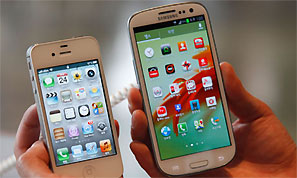Understanding consumer behaviour has always been one of the keys tools in the marketer’s kit. This is even more imperative now, when media-savvy consumers have proven to be more resistant to obvious marketing ploys, but appreciate thoughtful, relevant engagement, particularly when they perceive it to be of value.
For mobile marketers, this is crucial, which is why the Mobile Marketing Association’s Code of Conduct and Best Practices position marketing as an activity best done with the consumer’s consent, where possible with full participation of the consumer, and always respectful of the consumer’s inherent right to privacy, confidentiality, and control over their own personal information.
 In the information economy, where attention is the currency, marketers can only win their share of attention if they prove to be trustworthy, and demonstrate that they understand the needs of consumers.
In the information economy, where attention is the currency, marketers can only win their share of attention if they prove to be trustworthy, and demonstrate that they understand the needs of consumers.
This is why research into consumer behaviour is important. Recent research conducted by the MMA of Singaporean mobile users has some fascinating findings, and perhaps has something that we can all learn from.
Singapore is unique among Southeast-Asian nations because its small size and relative affluence have created a population that is very much on the cutting-edge of mobile use. Singapore boasts over 7.8 million mobile phone subscribers, a penetration rate of 150%, and is already rolling out 4G networks to cater to demand.
Our research revealed that 90 percent of mobile users surveyed reported owning a smartphone, an astonishingly high level. To be fair, this may be the way that other countries are heading, particularly as the cost of ownership of a smartphone falls, and as infrastructure develops to support them.
Smartphones offer users a higher level of customisation and utility, which makes them attractive alternatives to featurephones, particularly if the price difference is tolerable.
When asked what they could do without for a day, 43 per cent chose mobile over their friends, 32 per cent chose mobile over their families, and 39 per cent chose mobile over their laptops or desktops. We already know how important mobile devices are to modern users, but this is proof positive.
Other findings: 60 per cent multitask on their mobile devices while watching television and 84 percent check their mobile phones when they wake up in the middle of the night.
Most interestingly, for us marketers, nearly three-quarters of those surveyed indicated that they were receptive to mobile advertising. 42 per cent said that they would be interested if there was a good deal, and another 32 per cent cited relevance as the criteria. Only 26 per cent were not interested at all.
This backs up our long-held belief that relevance and value are the keys to capturing attention,
While the research is not necessarily conclusive, it does indicate attitudes towards mobile devices in Singapore – and perhaps shows one possible future, where the majority of users choose smartphones over featurephones. The full survey results will be available at a future date, and knowing about the preferences and behaviour of Singapore’s mobile phone users will be another addition to the knowledge pool of mobile marketers.
Rohit Dadwal is Managing Director of Mobile Marketing Association’s Asia Pacific branch


.jpg)
.jpg)







 © 2025
© 2025